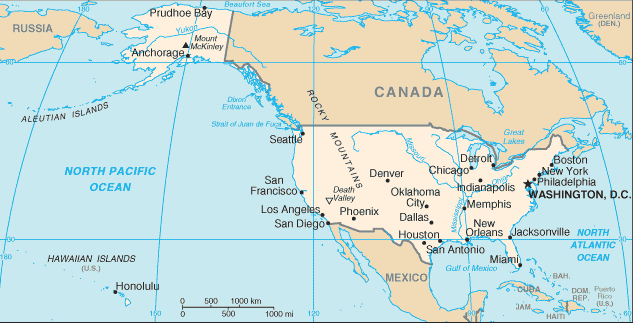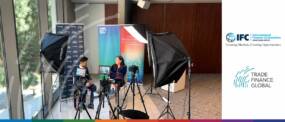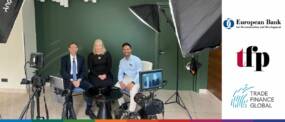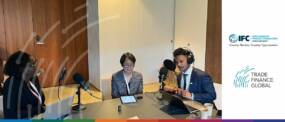
Exporting to United States
US Export Guide | Trade Finance Global
Exporting to United States
Any company looking to export products or services from the United States must take into consideration the relevance of Free Trade Agreements (FTAs). There are about 20 of these in place, through which favourable treatment makes business easier and cheaper to conduct. FTAs are usually bilateral and sometimes mean that more record keeping in trading situations is needed. They build on the World Trade Organisation (WTO) Agreement and do provide advantages when competing against products from other countries. These agreements are put in place to increase transparency in the trade and investment environment, ultimately resulting in greater stability.
While the US carries a large balance of trade deficit, reflecting the difference between the value of imports and exports, this figure has reduced recently as imports have decreased more rapidly than exports.
United States Country Profile
| Official Name (Local Language) | United States of America | Capital | Washington, DC | Population | 323,995,528 | Currency | US Dollar | GDP | $18,560 billion | Languages | English | Telephone Dial In | 1 |
United States Export Profile
Exports ($m USD)
444,052
Number of Export Products
4,317
Number of Export Partners
213
Top 5 export partners
Country
Trade
% Profit Share
China
526,022
21.85
Mexico
317,207
13.18
Canada
305,879
12.71
Japan
139,797
5.81
Germany
119,991
4.98
Top 5 Export Products at HS 6 digit level
Export Product
Number
Petroleum oils and oils obtained from bituminou
21.9%
Transmission apparatus, for radioteleph incorpo
13.2%
Automobiles with reciprocating piston engine di
12.7%
Other medicaments of mixed or unmixed products,
5.8%
Petroleum oils, etc, (excl. crude); preparation
5.0%
Chart Showing GDP Growth Compared to rest of world
GDP Composition for United States
Agriculture
%
Product List
1.1%
Wheat, corn, other grains, fruits, vegetables, cotton; beef, pork, poultry, dairy products; fish; forest products
Industry
%
Industry List
19.4%
Petroleum, steel, motor vehicles, aerospace, telecommunications, chemicals, electronics, food processing, consumer goods, lumber, mining
Services
%
Services List
79.5%
Exporting to United States: What is trade finance?
Trade finance is a revolving facility which alternative financiers offer – it enables firms to purchase inventory and can help ease cashflow issues.
Typically, an alternative financier will fund all of the cost of the product, including charges (e.g. taxes).
Trade finance offers added advantages over more traditional bank finance including invoice finance or loans. Trade finance provides up front funding without affecting existing bank relationships.
How does it work?
If you’re an SME importing or exporting stock supplies internationally, then a trade finance facility would allow you to fund this through offering a LC (letter of credit) or some form of cash advance.
I’m looking to export to the US, how can Trade Finance Global help, and how does it work?
If you are looking to export goods to other countries, you may require export finance, which is a commercial agreement between yourself (the exporter), and the importer from overseas. A alternative financier would advance you the cost of producing the stock supplies that you are exporting (as a debt instrument), either once you have sent the goods, or before manufacturing them. Once your foreign importer has received the inventory and pays you for the import, you will repay the advance loan from the funder over an agreed period.
Information

Exporting to United States? Contact our local experts

United States Economic Statistics
Government Website
https://www.usa.gov/
Sovereign Ratings
https://countryeconomy.com/ratings/usa
Central Bank
Board of Governors of the Federal Reserve
Currency USD Exchange Rate
N/A
Unemployment Rate
4.7%
Population below poverty line
15.1%
Inflation Rate
1.3%
Prime Lending Rate
3.5%
GDP
$18,560 billion
GDP Pro Capita (PPP)
$57,300
Currency Name
US Dollar
Currency Code
USD
World Bank Classification
High Income
Competitive Industrial Performance
3/138
Corruption Perceptions Index
16/180
Ease of Doing Business
8/190
Enabling Trade Index
22/136
Currency in United States
About the Author
Natasha Roston is Head of People and Growth at Trade Finance Global (TFG).
She builds partnerships to create innovative trade finance education projects and experiences. A key advocate for TFG’s annual Women In Trade campaigns, Natasha wrote a piece on the impact of gender stereotypes for gender equality in the workplace in 2022. Natasha is also responsible for TFG careers, culture, and team growth. A Level 2 Qualified Coach and Mental Health First Aid Champion, she leads internal training, supporting the holistic wellbeing of the team.
Before joining TFG Natasha worked in education for over a decade. Initially as a classroom teacher, and then in academic and pastoral leadership roles. Following this, she worked in EdTech as a Learning Design Coach for Aula’s Higher Education platform.
Natasha holds an MA from Tel Aviv University, a History PGCE from The Institute of Education and a BA from the University of Nottingham. Currently, she is studying for her Level 3 Certificate in International Trade from the Institute of Export & International Trade. In addition to her work at TFG, Natasha volunteers for the Young Women’s Trust as a Work It Out – CV Volunteer.
Careers | Terms of Business | Get in Touch | Partners
Trade Finance Global is the trading name of TFG Finance Ltd (company number: 10305143) and TFG Publishing Ltd (12157036), incorporated in England and Wales, at 201 Haverstock Hill, Second Floor Fkgb, London, England, NW3 4QG. Trade Finance Global is registered as a Data Controller under the ICO: ZB421903 and ZB436621.
TFG Finance Ltd is an introducer, not a lender, working with Limited Companies and Incorporated Bodies who may pay us a commission.
© 2024 Trade Finance Global
 Australia
Australia Hong Kong
Hong Kong Japan
Japan Singapore
Singapore United Arab Emirates
United Arab Emirates United States
United States France
France Germany
Germany Ireland
Ireland Netherlands
Netherlands United Kingdom
United Kingdom
 British Pound Exchange Rate
British Pound Exchange Rate



